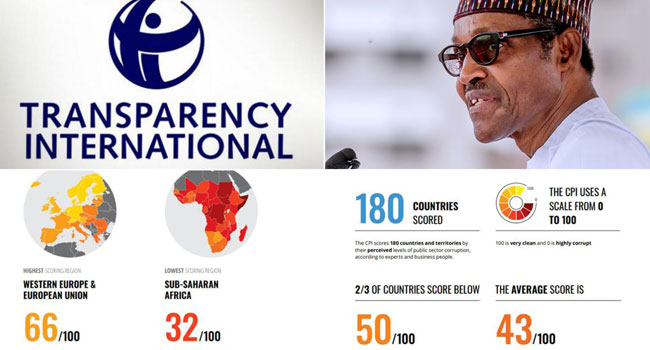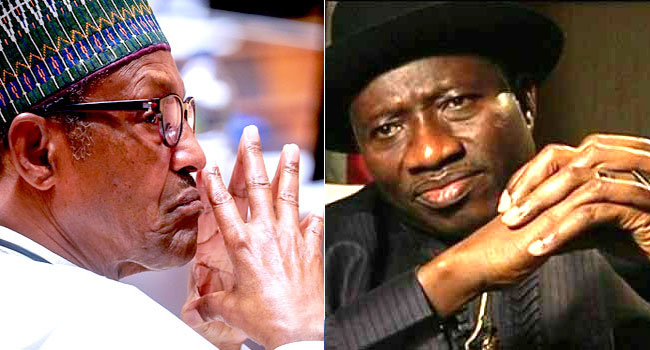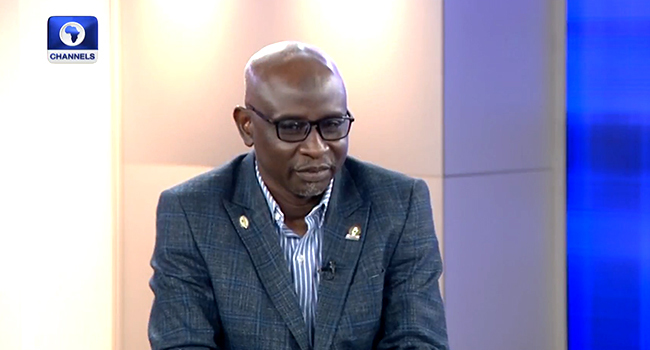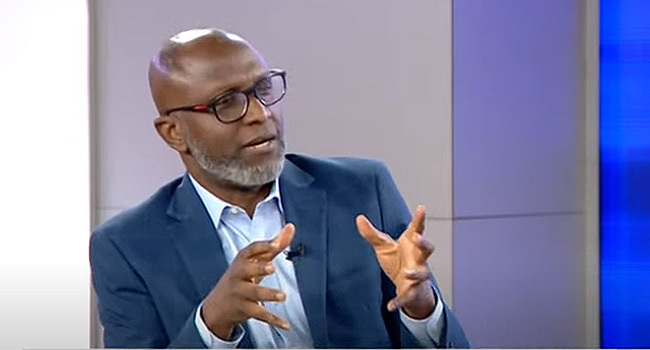On Thursday, January 23, Nigeria was ranked low in the 2019 corruption perception index published by Transparency International (TI).
The nation dropped two places to sit at 146 out of the 180 countries ranked in the index.
In the latest index, Nigeria scored 26 out of 100 points, dropping from the 27 points that it has maintained since 2017.
Speaking about the report, the head of TI in Nigeria, Auwal Rafsanjani, highlighted selective adherence to the rule of law and corruption in political parties as some of the reasons for the poor ranking.
READ ALSO: Why Nigeria Was Ranked Low In Corruption Index – Transparency International
Addressing journalists in Abuja, Mr Rafsanjani suggested that reducing big money in politics and promoting inclusive political decision-making are essential to curb corruption.
Though TI’s report has been strongly rejected by the Federal Government and the Economic and Financial Crimes Commission (EFCC), there are inferences within the report which the organisation says could help end corruption and restore trust in politics.
According to the report, here are seven things that Nigeria must do to prevent opportunities for political corruption and to foster the integrity of political systems.
1. Manage Conflicts of Interest
Governments should reduce the risk of undue influence in policy-making by tightening controls over the financial and other interests of government officials.
The governments should also address “revolving doors”, establish cooling-off periods for former officials and ensure rules are properly enforced and sanctioned.
2.Control Political Financing
In order to prevent excessive money and influence in politics, governments should improve and properly enforce campaign finance regulations.
Political parties should also disclose their sources of income, assets, and loans, and governments should empower oversight agencies with stronger mandates and appropriate resources.
3.Strengthen Electoral Integrity
For democracy to be effective against corruption, governments must ensure that elections are free and fair.
Preventing and sanctioning vote-buying and misinformation campaigns are essential to rebuilding trust in government and ensuring that citizens can use their vote to punish corrupt politicians.
4. Regulate Lobbying Activities
Governments should promote open and meaningful access to decision-making and consult a wider range of groups, beyond well-resourced lobbyists and a few private interests.
Lobbying activities should be public and easily accessible.
5. Tackle Preferential Treatment
Governments should create mechanisms to ensure that service delivery and public resource allocation are not driven by personal connections or are biased towards special interest groups at the expense of the overall public good.
6. Empower Citizens
Governments should protect civil liberties and political rights, including freedom of speech, expression, and association.
Governments should engage civil society and protect citizens, activists, whistleblowers, and journalists in monitoring and exposing corruption.
7. Reinforce Checks and Balances
Governments must promote the separation of powers, strengthen judicial independence and preserve checks and balances.
This year’s Corruption Perceptions Index (CPI), according to TI, shows corruption is more pervasive in countries where big money can flow freely into electoral campaigns and where governments listen only to the voices of wealthy or well-connected individuals.
The index ranked 180 countries and territories by their perceived levels of public sector corruption, according to experts and business people.
It used a scale of zero to 100, where zero is highly corrupt and 100 is very clean.
Similar to previous years, the data shows that despite some progress, a majority of countries are still failing to tackle public sector corruption effectively.





